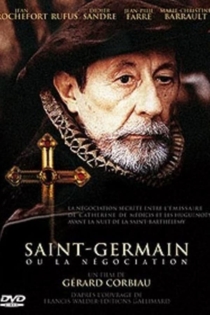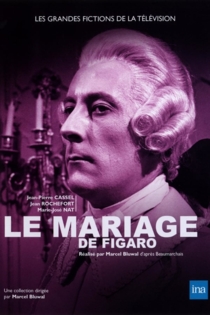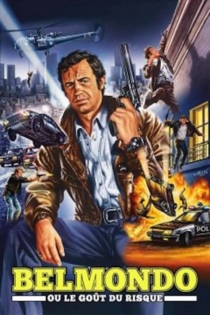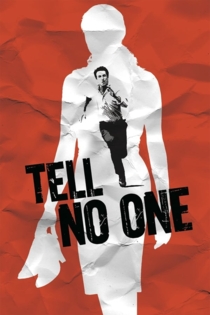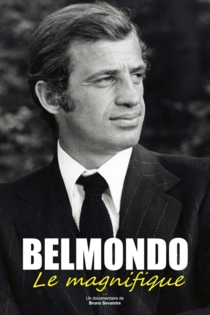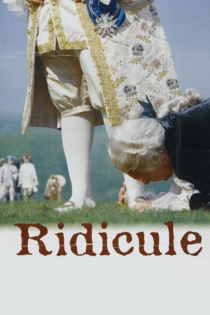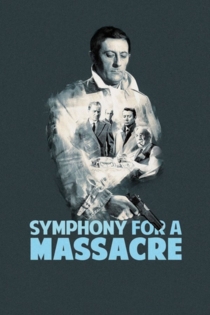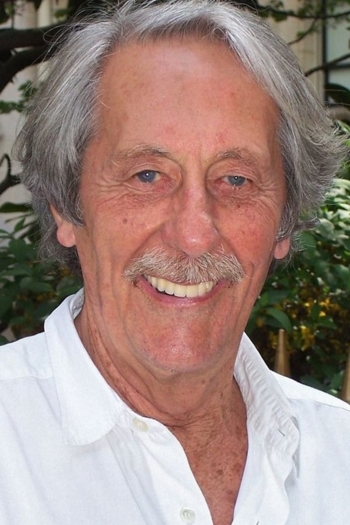
Jean Rochefort
1930 - 2017Rochefort was born in Paris, France. He was educated at the Lycée Pierre Corneille in Rouen He was 19 years old when he entered the Centre d'Art Dramatique de la rue Blanche. Later he joined the Conservatoire National. After his national service, in 1953, he worked with the Compagnie Grenier Hussenot as a theatre actor for seven years. There he was noticed for his ability to play both drama and comedy. He then became a television and cinema actor. He has also worked as director.
In his 30s during the shooting of Cartouche, he discovered his passion for horses and equestrianism. He has been a horse breeder since then and now owns Le Haras de Villequoy. His passion led him to become a horse consultant for French television in 2004. He has won two César Awards: In 1976, Best Supporting Actor for Que la fête commence; and in 1978, Best Actor for Le Crabe-tambour.
He was to play the title character in The Man Who Killed Don Quixote, after being found as "the perfect Quixote" by director Terry Gilliam. Rochefort learned English just for the part. Unfortunately, amongst other production problems, he began suffering from a herniated disc. Unable to film for months, production was cancelled. A documentary, Lost in La Mancha, was made about the failed production. With recent news of the film's possible restart, Rochefort has been recast with Robert Duvall, due to his inability to ride a horse.
In 1960 he married Alexandra Moscwa, with whom he fathered two children: a girl, Marie (1962), and a boy, Julien (1965).
In 2007, he sang with the French band Dionysos a short verse in l'homme sans trucage: « Vas-y, saute, monte, grimpe à ton cœur, sauve-toi, n'aie pas peur, ouvre grand, mon petit, il est temps d'avaler une énorme bouffée d'air frais, andalucia, anda, anda, andalucia... » (Go ahead, jump, climbs to your heart, save yourself, don't be afraid, open wide, my boy, it's time to swallow a huge breath of fresh air, andalucia, anda, anda, andaluci...)
Description above from the Wikipedia article Jean Rochefort, licensed under CC-BY-SA, full list of contributors on Wikipedia.
The Phantom of Liberty
Luis Buñuel
Adriana Asti, Milena Vukotić
This Surrealist film, with a title referencing the Communist Manifesto, strings together short incidents based on the life of director Luis Buñuel. Presented as chance encounters, these loosely related, intersecting situations, all without a consistent protagonist, reach from the 19th century to the 1970s. Touching briefly on subjects such as execution, pedophilia, incest, and sex, the film features an array of characters, including a sick father and incompetent police officers.
The Phantom of Liberty
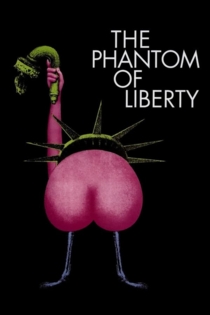
Belmondo par Belmondo
Régis Mardon
Jean-Paul Belmondo, Paul Belmondo
Jean-Paul Belmondo returns to the settings of a fantastic career, accompanied by his son Paul. Over a career spanning 50 years, Jean-Paul Belmondo’s movies drew over 130 million people into cinemas. This logbook takes us back to sets and countries, from where we can revisit the films in reference and find out about his fruitful collaborations with various directors. Paul Belmondo will lead the investigation, meeting the stars and his father’s friends (eye-witnesses all) and questioning his father about his journey, sharing it with us so we can discover the man and his story like never before.
Belmondo by Belmondo
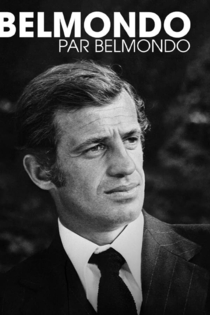
Le château de ma mère
Yves Robert
Philippe Caubère, Nathalie Roussel
To his chagrin, young Marcel Pagnol and his family move back to their home in Marseilles, France, far from their pastoral holiday cottage in the hills. Determined, Marcel makes the long voyage back to the cottage on foot and lands himself in trouble. One day Marcel's father discovers a shortcut to the cottage, but it requires trespassing. Despite their trepidations, Marcel and his family begin using the secret trail to reach their cottage.
My Mother's Castle
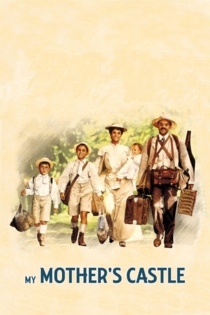
Sortűz egy fekete bivalyért
László Szabó
Jean-Louis Trintignant, Jean Rochefort
During the years following World War II, a new boy arrives to class 7/c, and the audience learns to know the lives of the drunkard teacher, his husband-cheating wife, the lonely music teacher hiding behind her paper flowers, the wise count deprived of all his properties, the jovial parish priest and especially the buffalo owner of tragic fate who lost his four daughters, alongside with the young protagonist.
Volley for a Black Buffalo
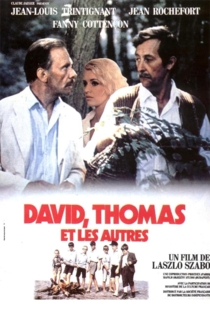
April and the Extraordinary World
Franck Ekinci, Christian Desmares
Marion Cotillard, Philippe Katerine
France asleep in the nineteenth century, governed by steam and Napoleon VI, where scientists vanish mysteriously, a girl, Avril, goes in search of her missing scientist parents.
April and the Extraordinary World
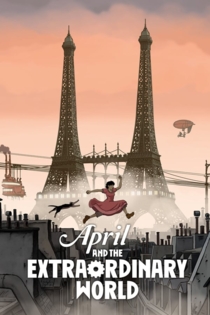
Lost in La Mancha
Keith Fulton, Louis Pepe
Terry Gilliam, Tony Grisoni
Fulton and Pepe's 2000 documentary captures Terry Gilliam's attempt to get The Man Who Killed Don Quixote off the ground. Back injuries, freakish storms, and more zoom in to sabotage the project.
Lost in La Mancha
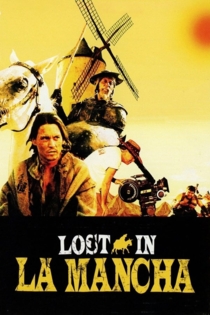
The Tall Blond Man with One Black Shoe
Yves Robert
Pierre Richard, Bernard Blier
Hapless orchestra player becomes an unwitting pawn of rival factions within the French secret service after he is chosen as a decoy by being identified as a super secret agent.
The Tall Blond Man with One Black Shoe
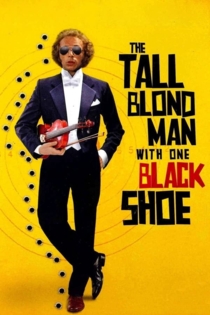
I Sent a Letter to My Love
Moshé Mizrahi
Simone Signoret, Jean Rochefort
A middle-aged disabled man unknowingly begins a lonely hearts correspondence with his own unmarried sister, who takes care of him. As he writes more and more to her, he begins to fall in love, and she, knowing that it is her brother who is writing, discovers a new, tender side to him. But trouble looms when he asks to meet her in person.
I Sent a Letter to My Love
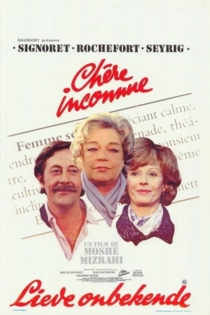
Saint-Germain ou La négociation
Gérard Corbiau
Jean Rochefort, Marie-Christine Barrault
This is the TV adaptation of a novel by Francis Walder. The scene happens in 1570, during the religions wars between catholics and protestants in France. Both sides are decided for a truth, to enable peaceful negociations of a settlement, which will become the peace of Saint-Germain-en-Laye, the same year. The negociation, lead by Henri de Malassise (Jean Rochefort), and the Earl of Biron for the Catholic side, and Mr. d'Ublé and M. de Mélynes for the protestants side.
Saint-Germain ou La négociation
